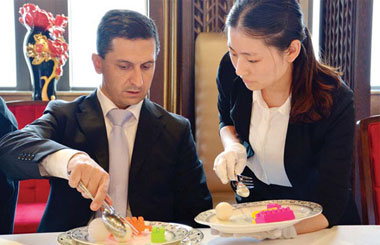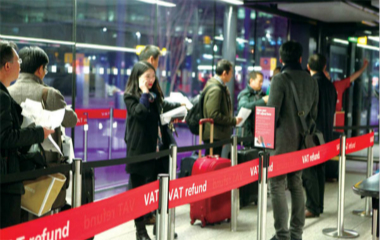Gambia resumes ties with China
Updated: 2016-03-17 19:05
By Li Xiaokun(chinadaily.com.cn)
|
|||||||||
China on Thursday resumed diplomatic ties with Gambia, the African country which cut "diplomatic'' relations with China's Taiwan in 2013.
Foreign Minister Wang Yi and his visiting Gambian counterpart signed a joint communique to resume diplomatic ties at the ambassadorial level on March 17.
"The Islamic Republic of The Gambia recognizes the importance and reality of the One-China policy, the national reunification and peaceful reunification," said Neneh Macdouall-Gaye, the Gambian foreign minister.
"And the Islamic Republic of The Gambia, the president, the government and the people of Gambia will support this initiative and will support the policy at all levels," she said when meeting reporters with Wang after the signing ceremony.
"We want to congratulate ourselves for this very historic event."
Wang said upholding the One-China principle is the prerequisite and political foundation for China's diplomatic relationship with any country.
"For more than two years, Gambia has demonstrated firm sincerity and determination and has made the right choice on this matter," he said.
China set up diplomatic ties with Gambia in 1974. In the following two decades, China helped the country to build a number of projects for free.
In 1995, Gambia cut its diplomatic ties with Beijing, shifting to Chinese Taipei.
However, it announced in late 2013 it would cut "diplomatic" ties with Taiwan. A statement from the president's office said the decision was based on national strategic consideration.
Beijing said after learning the news that it had not contacted Gambia beforehand.
Wang said on Thursday that the resumption of the ties is a natural outcome of previous efforts, follows the trend of the times and is in line with the interests of the two countries and their peoples.
"The China-Gambia relationship has thus turned to a whole new page."
He said both countries will explore cooperation in six priority areas, such as agriculture, investment and trade and infrastructure, including port construction, to allow people see how their "candid interests" are met from the resumption of ties.
Today's Top News
A 24-year-old PKK member is Ankara bomber
China to lead development of Swiss SMEs
Putin says Russians to start withdrawing from Syria
Trump calls campaign 'a lovefest'
German voters batter Merkel over migrant policy
China condemns terrorist attack in Turkey
Growth focus
Opening a window on rural China
Hot Topics
Lunar probe , China growth forecasts, Emission rules get tougher, China seen through 'colored lens', International board,
Editor's Picks

|

|

|

|

|

|






